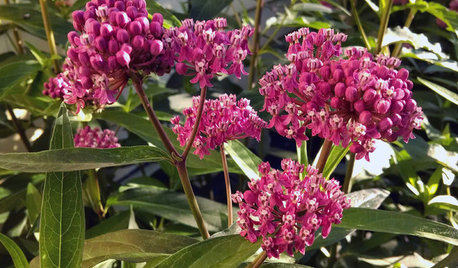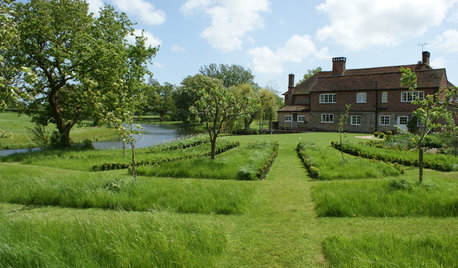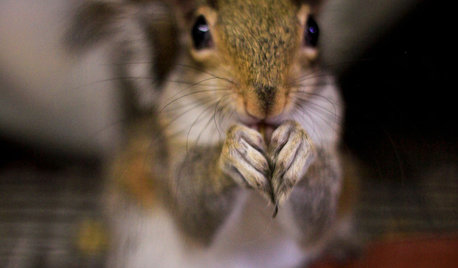Has anyone tried Milky Spore for grub worms??
BelindaM
19 years ago
Related Stories

GARDENING GUIDESOh, Deer! 10 Native Flowers That Stand Up to the Herds
Keeping a garden amid hungry deer can be hard, but these plants should fare well
Full Story
WINTER GARDENINGPruning Secrets for Exquisite Roses
Encourage gorgeous blooms year after year with this time-tested advice on how to prune your rosebush in winter for health and shape
Full Story
FURNITUREOld Furniture: Clean, Reupholster or Replace It?
A veteran upholstery cleaner weighs in on the options for found, inherited and thrift store furniture
Full Story
FEEL-GOOD HOME21 Ways to Waste Less at Home
Whether it's herbs rotting in the fridge or clothes that never get worn, most of us waste too much. Here are ways to make a change
Full Story
LIFEThe Top 5 Ways to Save Water at Home
Get on the fast track to preserving a valuable resource and saving money too with these smart, effective strategies
Full Story
GARDENING GUIDESGreat Design Plant: Stachys Officinalis ‘Hummelo’
The adaptable ‘Hummelo’ betony adds jolts of color to a sunny border or woodland edge
Full Story
MOST POPULARModern Party Etiquette for Hosts and Guests
Learn the mannerly way to handle invitations, gifts and even mishaps for a party that's memorable for the right reasons
Full Story
GRASSESHow to Rock a Lawn
Weekend Project: The key to healthy grass begins with the soil. If turf works for you, here’s how to fix it and keep it looking its best
Full Story
FARM YOUR YARDHow to Grow Vegetables in Containers
Get glorious vegetables and fruits on your patio with a pro’s guidance — including his personal recipe for potting mix
Full Story
LIFEHow to Outsmart Backyard Critters
Learn to think like a raccoon, skunk or squirrel to keep your home safe and your garden intact
Full StoryMore Discussions






Franklin66
Kimmsr
Related Professionals
Brooklyn Center Landscape Architects & Landscape Designers · Berkeley Heights Landscape Contractors · Coram Landscape Contractors · Deer Park Landscape Contractors · Palos Verdes Estates Landscape Contractors · Streamwood Landscape Contractors · 07920 Landscape Contractors · Athens Decks, Patios & Outdoor Enclosures · Fishers Decks, Patios & Outdoor Enclosures · Garden City Decks, Patios & Outdoor Enclosures · Green Bay Decks, Patios & Outdoor Enclosures · Hockessin Decks, Patios & Outdoor Enclosures · Renton Decks, Patios & Outdoor Enclosures · Shirley Decks, Patios & Outdoor Enclosures · Wentzville Decks, Patios & Outdoor Enclosureslimhyl
hermantomato
patricianat
shellva
wayne_5 zone 6a Central Indiana
PescadoFrito
Kimmsr
pcwhitley1990
wayne_5 zone 6a Central Indiana
Green_Giant
dixiesmom
rhizo_1 (North AL) zone 7
Jerry_realgreenlawns_com
rangier
Kimmsr
rangier